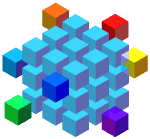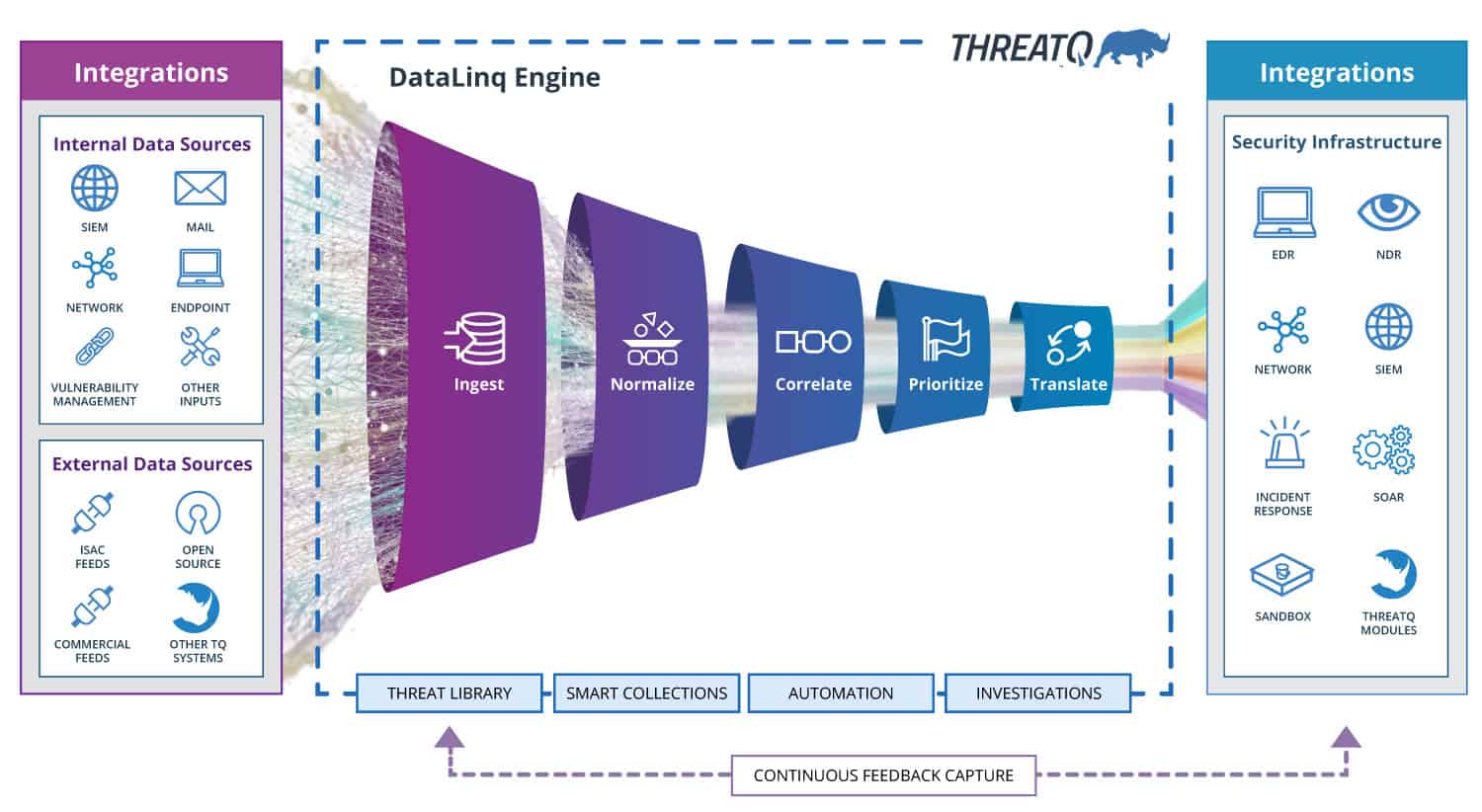Threat Detection, Investigation & Response
TDIR is a process that automatically collects and correlates data from multiple security products to improve threat detection, investigation and response capabilities. With TDIR, you need to connect all detection and response products from all vendors from cloud to on-premises. Add to that the challenge of connecting third-party data and intelligence for context and we are faced with a tall task. What is needed is an open architecture so that all systems and sources can work together, sending the right data to the right tools at the right time for accelerated detection and response.
GOALS OF TDIR

Combine data from disparate sources,
both internal and external

Connect atomic events from individual systems into a single incident
Learn how to use ThreatQ for TDIR
Take a quick look at how TDIR with ThreatQ can help you reduce noise and focus on the threat. If you like what you see, schedule a demo for a deeper dive.
HOW THREATQ ENABLES TDIR
DataLinq Engine™
Connecting disparate systems and sources, this adaptive data engine imports and aggregates external and internal data; curates and analyzes data for decision making and action; and exports a prioritized data flow across the infrastructure for improved prevention, and accelerated threat detection, investigation and response (TDIR).
Ingest
and aggregate structured and unstructured data via Marketplace apps and an open API.
Normalize
automatically from different sources, formats and languages into a single object.
Correlate
across atomic pieces of data to identify relationships and provide a unified view.
Prioritize
to ensure relevance, determine importance and filter noise based on user configuration.
Translate
data into the format and language necessary for consumption across systems.
Threat Library
Single source of truth – for threat detection and incident response data and related context. Organizational Memory – learn and improve over time by storing and prioritizing the data collected from previous detections, investigations and incidents.
TDR Orchestrator
![]()
Simplify orchestration and automation through a no-code/low-code, data-driven approach which “puts the smarts into the platform.” ThreatQ does this through data curation and extracts much of the complexity of process-driven playbooks. Update the platform once vs having to update dozens of playbooks.
Investigations
See related events from different security systems as part of a single incident. Collaborate amongst teams for investigation, analysis and response.
Marketplace
Leverage bi-directional integrations across your existing security solutions to enable an open architecture. ThreatQ supports an ecosystem of over 400 feed and product integrations and provides easy-to-use tools for custom integrations.
THREATQ MARKETPLACE
Integrate your existing security solutions within a data-driven threat intelligence platform. ThreatQ supports an ecosystem of over 450 product and feed integrations, provides the ThreatQ Integration Framework including easy-to-use tools for custom integrations, streamlining threat detection, investigation and response across your security infrastructure.
THREATQ ARCHITECTURE

